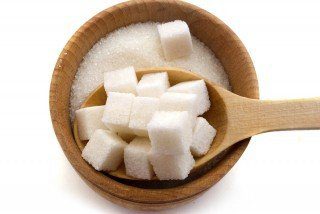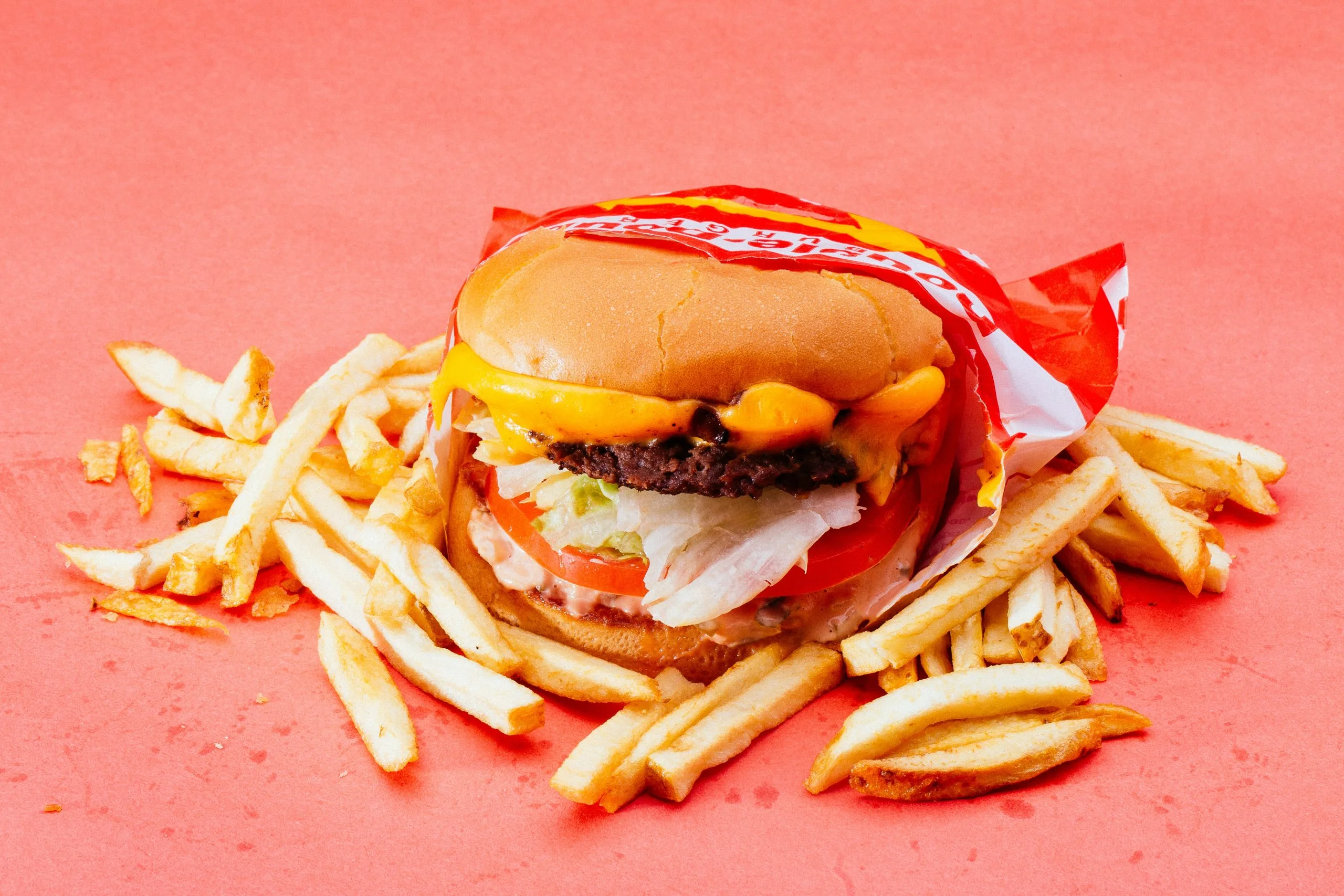We live in a world where processed foods are the norm rather than the exception. It’s partially because we live such busy lives that processed foods have risen in popularity. Most of us feel that we don’t have time to come home after work and make dinner from scratch. Instead, we tend to reach for a shop brought ready meal instead. The same kind of thing happens with breakfast. These days, we have a tendency to eat on-the-go, never stopping to consider what’s in our food. But could grabbing a muffin for breakfast have more serious health implications?
What is processed food?
We know it’s a bad idea to eat it and we do it anyway. But what is processed food and why is it so bad for us? The term itself often causes a lot of confusion. Most foods are processed in some way. This is often done to make them safe or easier for us to eat. Essentially, there are two types of processing mechanical and chemical. Mechanical processing is a safe type of processing. This includes things like harvesting vegetables and ground beef. As well as heating vegetables and processes such as pasteurization. As long as the processing doesn’t add any chemicals or other ingredients, it usually doesn’t make the food unhealthy.
It’s the other type of processing, chemical processing, that is the problem. Chemically processed foods are often very highly processed. These foods contain highly refined ingredients and artificial substances both of which have little to no nutritional value. According to Medical News Today, some of the additives that go into processed foods include “chemical flavoring agents, colors, and sweeteners”. These foods are often referred to as ‘cosmetic foods’, the antithesis of whole foods.
Examples of ultra-processed foods, according to Medical News Today include:
- Frozen or ready-to-eat meals

Photo by Tijana Drndarski from Pexels
- Baked goods including packaged bread, cakes, and pastries
- Breakfast cereals
- Processed cheese
- Instant noodles and packet soups
- Candy
- Ice-cream
- Reconstituted meats, such as sausages, nuggets, fish fingers, and processed ham
So, are they bad for you?
The short answer seems to be yes. However, they’re particularly bad for you when eating in large quantities. One of the major problems with processed foods is that they’re cheap and tend to taste very good. This, of course, leads to overconsumption, which is where the problems start. Processed foods are often high in sugar, saturated fat, and salt but lack dietary fiber and vitamins.
One study of 100,000 adults found that increasing your intake of processed foods by just 10% increased your chances of cardiovascular disease, coronary heart disease, and cerebrovascular diseases by more than 10%. Another study of 20,000 adults found that eating “more than 4 servings of processed food daily was linked with an increased risk of all-cause mortality”. For each additional serving after four, the risk increased by 18%. There is also substantial evidence that eating processed foods leads to weight gain.
Can I eat processed foods as part of a healthy diet?
 According to the NHS, you can, at least to a limited extent. The key is making sure that you are reading the labels when you buy your food. Of course, it’s always better to make your food from scratch at home if you can. However, if you can’t manage to do that, make sure that you read the labels properly. You want to look at fat, salt, and sugar content in particular.
According to the NHS, you can, at least to a limited extent. The key is making sure that you are reading the labels when you buy your food. Of course, it’s always better to make your food from scratch at home if you can. However, if you can’t manage to do that, make sure that you read the labels properly. You want to look at fat, salt, and sugar content in particular.
Usually, these are color-coded according to how high they are in those particular things. The color coding is usually red, orange, and green like a traffic light. For instance, if you were looking at the sugar content. Red indicates that it’s very high in sugar and green indicates that it is relatively low in sugar. According to the NHS, you want to try and go for either green or amber and avoid red.
According to the NHS, the guidelines for adults are as follows:
Total Fat
- High: more than 17.5g of fat per 100g
- Low: 3g of fat or less per 100g
Saturated Fat
- High: more than 5g of saturated fat per 100g
- Low: 1.5g of saturated fat or less per 100g
Sugars
- High: more than 22.5g of total sugars per 100g
- Low: 5g of total sugars or less per 100g
Salt
- High: more than 1.5g of salt per 100g (or 0.6g sodium)
- Low: 0.3g of salt or less per 100g (or 0.1g sodium)
Processed food and obesity
One of the biggest problems with processed foods is that they seem to be directly linked to obesity. In the USA for example, the rise in the rate of obesity is

Obesity
being linked by medical professionals with the high consumption of processed foods. One of the main reasons that consumers opt for processed foods rather than fresh is because of how cheap and convenient they are. The Covid-19 pandemic meant that many people lost their jobs and finances became strained. Thus, people choose to buy cheaper, processed foods as they essentially get more for less. However, the impact that these foods have on our overall health is pretty dire.
When it comes to health, we have a tendency to focus on fat and calorie content rather than how nutritious the food is and whether or not it will benefit our bodies. But despite all this focus on calories and the rise of low-fat foods, the obesity epidemic continues to be a problem. In fact, more than a third of adults in the US are considered obese and 71% are obese or overweight. The reason that so many of us turn to processed foods is time.
We live very busy lives and often feel that we simply don’t have the time to come home after work and prepare dinner or make breakfast in the morning. Instead, many of us eat on the run and just grab anything affordable that we can get our hands on to satisfy our hunger. Seldom do we bother to think about whether or not it’s healthy.
What’s the issue with processed foods?
Foods such as “sugar-sweetened beverages, potato chips, sweets, desserts, refined grains, processed meats, and even red meat” are well-known causes of weight gain. Though these foods might satisfy cravings, they don’t have much (if any) nutritional value. They are calorie-dense but lacking in nutrients. They also tend to stay in our system for a long time because they lack fiber. Ultra-processed foods also seem to have an impact when it comes to the sensation of fullness. It seems that, when eating these foods, we miss the signals from our brains that tell us that we have eaten enough. All this focus on calories is an issue because people tend to choose low-calorie foods which don’t necessarily have many benefits.
Instead, Kristin Kirkpatrick, MS, RDN, told Healthline “Americans need to focus more on getting more bang for their nutritional buck. Every calorie must count”. The fact that we all eat so much processed foods has led to the rise in obesity and this, in turn, has caused havoc during the Covid-19 pandemic. It is now understood that being overweight and/or obese increases your risk of becoming seriously ill or dying from Covid-19 substantially.
Processed foods and Alzheimer’s

Photo by Matthias Zomer from Pexels
Alzheimer’s is, in the United States at least, a fast-growing problem. According to Dr. Lisa Mosconi for Quartz the USA is “on track” to have 15 million Alzheimer’s patients by 2050. Equivalent to the population of New York City, Los Angeles, and Chicago combined. For years, scientists and doctors alike believed that Alzheimer’s, like Cancer, was linked to genetics alone.
However, the latest research shows that only 1% of the population develops Alzheimer’s due to genetic mutations. Instead, it now seems that the disease is linked to behavioral and lifestyle factors. Many scientists now agree that, to a large extent, Alzheimer’s can be prevented by making lifestyle improvements. This means better cardiovascular health, staying fit, stimulating our brains, and of course, eating better.
Unsurprisingly perhaps, once again the culprit seems to be processed foods. Not your mechanically processed foods or freezing or drying foods but the ultra-processed kinds. These foods it seems don’t only lead to obesity and a higher risk of developing diseases like cancer. They are also linked to a substantial decline in brain health – dementia and Alzheimer’s. Some studies have shown that even eating just 2 grams a day of trans-fats puts people at twice the risk of those that ate less than 2 grams. It has been mandatory to label foods with trans-fats since 2003.
The bottom line
Ultimately, it is clear that we need to change our diets. We have to force the hands of the food industry by avoiding buying ultra-processed foods. This will likely necessitate a change in our behavior. We’ll all need to learn to plan ahead more and pack our lunches. Yes, processed foods make our lives easier and not all processed foods are bad. However, we need to watch what we eat and become more vigilant about what we put in our bodies.
References
https://www.bmj.com/content/365/bmj.l1451
https://www.medicalnewstoday.com/articles/318630#is-it-bad-for-you
https://www.nhs.uk/live-well/eat-well/what-are-processed-foods/
https://www.lhsfna.org/index.cfm/lifelines/may-2019/the-many-health-risks-of-processed-foods/
https://www.medpagetoday.com/primarycare/dietnutrition/91752
https://www.medscape.com/viewarticle/932152
https://www.medicalnewstoday.com/articles/318630#sugar
https://qz.com/1234901/the-road-to-alzheimers-disease-is-lined-with-processed-foods/



![women [longevity live]](https://longevitylive.com/wp-content/uploads/2020/01/photo-of-women-walking-down-the-street-1116984-100x100.jpg)











Katie Hart wrote, “Processed foods are often high in sugar, saturated fat, and salt but lack dietary fiber and vitamins.”
Actually, no matter how much saturated fat processed foods contain, they also are overly rich in polyunsaturated fats. How is that a problem? Excerpt: “Separately, on analyzing global COVID-19 mortality data and comparing it with 12 risk factors for mortality, they found unsaturated fat intake to be associated with increased mortality. This was based on the dietary fat patterns of 61 countries in the United Nations’ Food and Agricultural Organization database. Surprisingly, they found saturated fats to be protective.” https://www.medpagetoday.com/reading-room/aga/lower-gi/86940
The latest research from the University of Bergen in Norway casts doubt on 60 years of anti-saturated fat narrative. Excerpt: “It has been thought for more than half a century that saturated fats in the diet promote heart disease by increasing blood cholesterol. However, a new model explains why this so-called ‘diet-heart hypothesis’, which has had a major influence on dietary guidelines, may have an alternative explanation.” https://www.eurekalert.org/pub_releases/2021-01/tuob-npc012221.php
Clearly, American Heart Association advice to replace saturated fats with polyunsaturated fats has been a success in terms of compliance but an epic fail in terms of protecting population health. https://www.youtube.com/watch?v=pHnPinYI2Yc